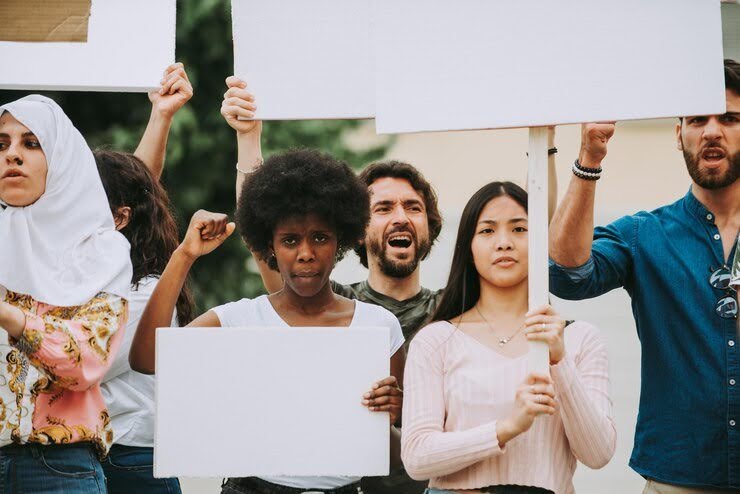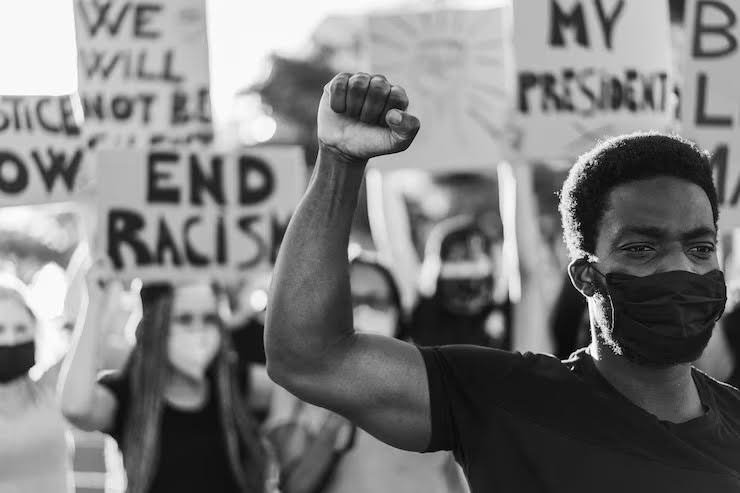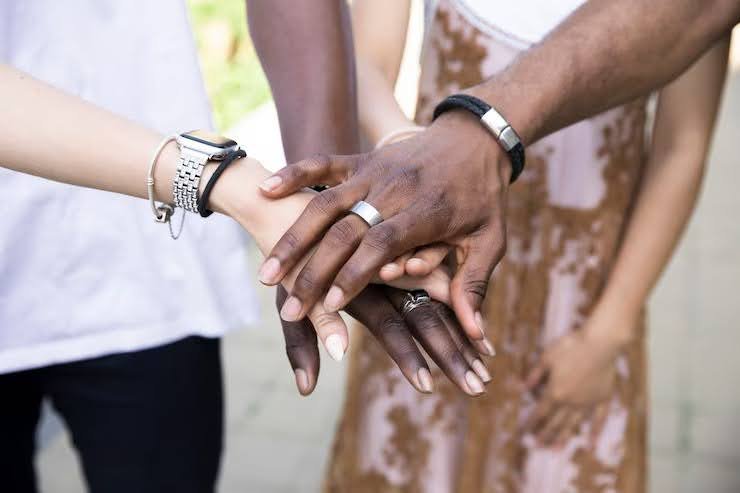
It only takes a few words, sometimes even a poorly timed joke or an angry outburst, to land someone in trouble for causing racial enmity in Singapore. In a multicultural society like ours, the law is firm when it comes to protecting racial and religious harmony. That’s where Sections 298 and 298A of the Penal Code come in.
These laws exist for good reason — they help keep the peace in a diverse country where different races and religions live side by side. But what exactly do they mean? And what happens if you (or someone you care about) get charged under them?
Here’s what every Singaporean should know.
What Is Section 298 Of The Penal Code?

Section 298 of the Penal Code makes it an offence to utter words or perform any act to hurt someone’s religious or racial feelings. This section is focused squarely on what’s going on inside a person’s mind, their motive or purpose, at the time of the act.
You could be charged under Section 298 if you:
- Say something offensive about someone’s religion during a quarrel
- Share a meme or video mocking a religious practice with the aim of insulting
- Send a message that ridicules another race or belief system, knowing it would provoke anger or distress
It doesn’t matter whether the act happened in public or private. Even a WhatsApp message, if reported and proven to be intentionally offensive, can lead to prosecution.
What The Law Looks For
The keyword here is “intention.” Prosecutors need to prove that you meant to insult or hurt someone’s religious or racial sentiments. It’s not enough for the other person to simply feel offended — there must be evidence that you intended for that outcome.
That’s why context is everything. The tone, timing, and setting of what was said or done all play a role in how a case is judged in Court.
Penalties Under Section 298
If found guilty, the punishment under Section 298 can be:
- Imprisonment of up to 3 years
- A fine
- Or both
Depending on the circumstances, the Court may consider whether the act was a one-off moment of anger or whether it was deliberate, repeated, and targeted.
What About Section 298A?
Section 298A is broader and focuses more on the effect of what was said or done, not just the intention.
This section targets actions that threaten racial or religious harmony. If your words or actions cause:
- Disharmony
- Feelings of enmity, hatred, or ill will
- Offences against any racial or religious group
…then Section 298A may apply, even if you didn’t mean to offend anyone.
Punishment: Up to 3 years’ imprisonment, a fine, or both.
This section is often used in public or online incidents, like social media posts or videos that go viral and stir racial tensions.
Why These Laws Matter

In a country as diverse as Singapore, where different races, cultures, and religions coexist closely, harmony isn’t something we can take for granted, it’s something we actively protect. That’s exactly why Sections 298 and 298A of the Penal Code matter.
These laws serve as legal guardrails that prevent our social fabric from fraying. They exist not to restrict speech unnecessarily, but to draw a clear line between freedom of expression and speech that can stir racial or religious tensions.
A Lesson From Our History
Singapore has experienced first-hand the consequences of racial unrest. Past events, like the 1964 racial riots, remain a sobering reminder of how quickly harmony can unravel when emotions run high and respect breaks down. The damage goes beyond the physical. It can tear apart communities, poison relationships, and shake public confidence.
That’s why the law treats racial enmity seriously. A seemingly harmless joke or careless post online can have real-world consequences, especially in a digital age where words spread fast and wide. The law steps in when speech becomes harmful, not just personally, but socially.
Protecting Unity Without Silencing Voices
Singapore’s legal framework aims to strike a balance. People are free to express themselves — to discuss, debate, and disagree, but not at the expense of racial or religious peace.
Sections 298 and 298A don’t punish honest mistakes or casual disagreements. They target speech and actions that are intended (or likely) to stir ill will, hatred, or division between groups. This ensures that our conversations stay respectful, even when emotions run high.
Ultimately, these laws reflect our shared understanding: that maintaining peace in a multiracial society is everyone’s responsibility, and that there’s no place for words or actions that threaten it.
Charged Under Section 298 Or 298A? What You Can Do
If you or someone you know is facing charges under these laws, it can be a daunting experience. You may feel misunderstood, especially if you didn’t mean to offend.
That’s why it’s important to speak to someone who understands the law and who will fight for your side of the story.
At Tembusu Law, our team includes some of the best criminal lawyers in Singapore. We’ve handled complex cases involving alleged racial enmity and helped clients present their cases with clarity, honesty, and compassion.
Whether you made a genuine mistake or are being wrongly accused, you deserve strong representation and fair treatment in Court.
Conclusion About Racial Enmity In Singapore
Racial harmony is something we all benefit from, and we each have a part to play in protecting it. But if you’re caught in a situation where things have gone too far, the legal process doesn’t have to overwhelm you.
Let Tembusu Law stand by your side. With some of the best criminal lawyers in Singapore, we’re ready to listen, guide, and fight for your best outcome.
Facing a legal issue involving racial enmity? Contact Tembusu Law today for a confidential consultation.
Frequently Asked Questions About Racial Enmity In Singapore
What Counts As Racial Enmity In Singapore?
Racial enmity refers to actions or speech that stir hostility or ill feelings between racial or religious groups in Singapore.
Is Intention Needed To Be Charged Under Section 298?
Yes. For Section 298, the prosecution must show that the accused intended to hurt religious or racial feelings.
Can You Be Charged Under Section 298A Without Intending Harm?
Yes. Section 298A focuses on the effect of your words or actions, not your intent. Even unintended harm can trigger legal consequences.
What Are Some Examples Of Offences Under Section 298A?
Offensive social media posts, racially charged speeches, or public statements that stir hatred between communities may fall under Section 298A.
Can Private Messages Lead To Charges Under These Laws?
Yes. If the content of the message is offensive and meant to insult someone’s religious or racial beliefs, it may still fall under Section 298.
What Should I Do If I’ve Been Charged Under These Sections?
Engage a criminal defence lawyer immediately. You’ll need professional advice to understand your rights and how to respond properly in Court.
Why Choose Tembusu Law For A Racial Enmity Case?
Tembusu Law has some of the best criminal lawyers in Singapore, known for their expertise, professionalism, and client-first approach in sensitive cases.